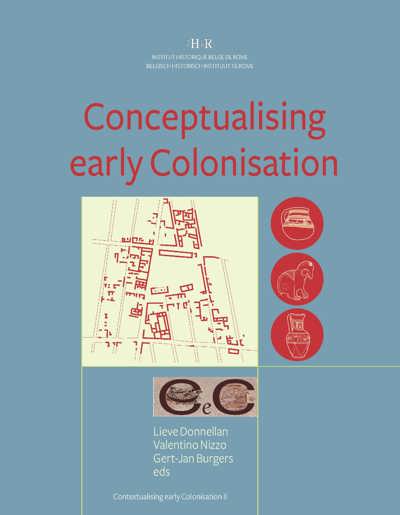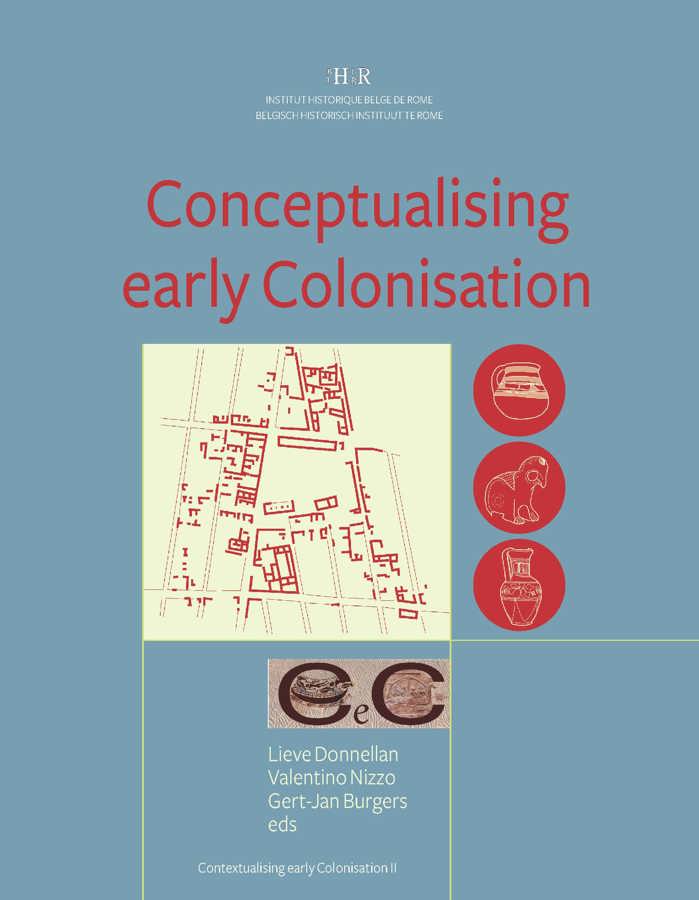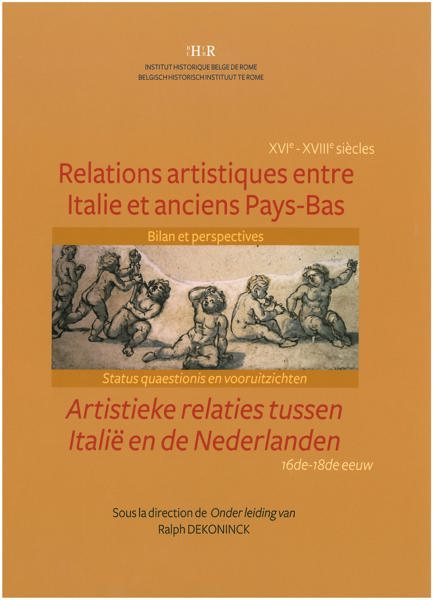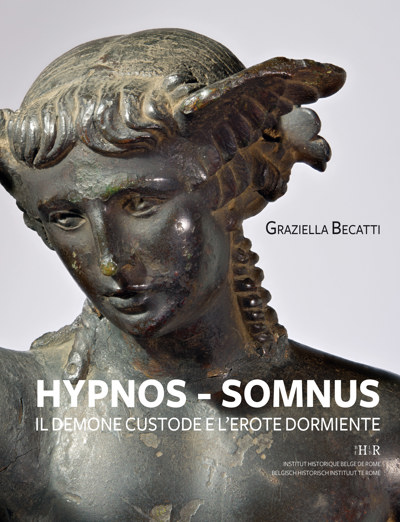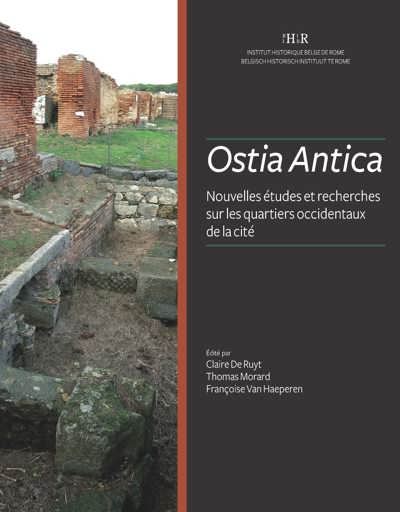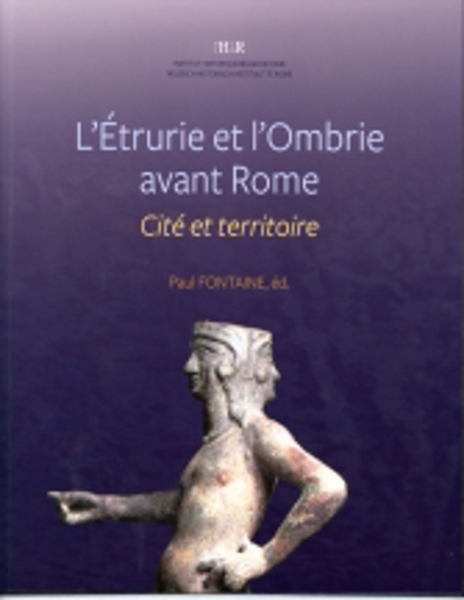
Conceptualising early Colonisation
Lieve Donnellan, Valentino Nizzo, Gert Jan Burgers (eds)
- Pages: 246 p.
- Size:190 x 255 mm
- Language(s):English, French, Italian
- Publication Year:2016
- € 75,00 EXCL. VAT RETAIL PRICE
- ISBN: 978-90-74461-82-5
- Paperback
- Available
"Insgesamt wird man den schön gestalteten und mit wenigen Ausnahmen sauber redigierten Band mit Gewinn von Buchdeckel zu Buchdeckel, keinesfalls aber sine ira et studio lesen – zu unterschiedlich sind die Positionen, zu polarisiert die Forschungsdebatten.(...) Aus Sicht des Rezensenten profitiert der Band zudem außerordentlich von den meist kurzen und prägnant geschriebenen Beiträgen. Umgekehrt bringt diese Zuspitzung in der Sache wie auch in der Sprache mit sich, dass Debatten, Quellen und Befunde häufig nur tangiert und als bekannt vorausgesetzt werden. Man wird in dem Band also kaum schmökern können, sondern ihn konzentriert durcharbeiten müssen – das hat sich dieses Buch aber auch verdient, für dessen Publikation der Herausgeberin und den Herausgebern zu danken ist." (Matthias Hoernes, in: Frankfurter elektronische Rundschau zur Altertumskunde 31 [2016], p. 62-60)
« (…) cet ouvrage, par sa richesse et sa diversité, marque (…) une étape importante dans la prise en compte réciproque des différentes conceptions du phénomène colonial grec. À ce titre, le pari initial des éditeurs est tout à fait réussi. » (Mickael Bouali, dans la Revue des études anciennes, 118/2, 2016, p. 651)
“This volume is a welcome contribution reflecting recent advances in archaeological theory and successful integration with studies of material culture.” (Stefanos Gimatzidis, in Bryn Mawr Classical Review, 2017.05.43)
“Der Band ist eine Fundgrube und ohne Frage eine Bereicherung, denn es wurden sonst allzu vereinzelte Positionen und interessante Ansätze zusammengetragen – ein erster Schritt zu einer Konzeptualisierung der sogenannten (Großen) „Kolonisation“ der Griechen.” (Dominik Delp, in Historische Zeitschrift, 306/3, 2018, p. 784)
Lieve Donnellan is a postdoctoral fellow at the Archaeological Institute of the Georg-August-University Göttingen. Her research focuses on intercultural interaction and human mobility in the Mediterranean, especially during the Early Iron Age and Archaic Period in Southern Italy and Sicily. Her article Apollo mediating identities in early Greek Sicily was awarded the BaBesch Byvanck Award in 2012.
Valentino Nizzo is Functionary Archaeologist for the Italian Ministero dei beni e delle attività culturali e del turismo – Direzione generale Musei. He has published more than hundred articles and three books, among which Ritorno ad Ischia. Dalla stratigrafia della necropoli di Pithekoussai alla tipologia dei materiali (Napoli 2007, Collection du Centre Jean Bérard) e Archeologia e Antropologia della Morte: storia di un’idea (Bari 2015, Bibliotheca Archaeologica - Edipuglia).
Gert-Jan Burgers holds a chair in Mediterranean Archaeology, at the Faculty of Humanities of the VU University Amsterdam. The greatest part of his academic career has been concerned with the archaeology of (Southern) Italy, in particular of the protohistoric phases.
Conceptualising early Colonisation focuses on various ways scholars represent ancient Greek colonisation in Italy. The conventional term "colonisation" has come under scrutiny for its misleading implication of imperialism, unbalanced interactions between "colonisers" and "colonised" and institutionalised racism, that characterised modern colonial movements. The complexity of the phenomenon in Antiquity does not allow for a straightforward equation with modern colonisation, but alternative concepts for this ancient "colonisation" appear to be equally elusive. Conceptualising early colonisation needs to take the entanglement with other processes into account, as there are state formation, urbanisation, technological innovations, increasing connectivity and identity formation, among others.
This volume constitutes a second group of texts that have originally been presented at the Contextualising early colonisation conference, held in Rome in June 2012. Papers address general questions on how early colonisation should be conceptualised, and several present in-depth case studies that explore how various approaches and terminologies operate in practice. Concepts that are explored range from migration, network theory and identity formation over postcolonialism, gender theory to connectivity.
L. Donnellan & V. Nizzo, Conceptualising early Greek colonisation. Introduction to the volume
R. Osborne, Greek 'colonisation': what was, and what is, at stake?
I. Malkin, Greek colonisation: The Right to Return
J. Hall, Quanto c'è di "greco" nella "colonizzazione greca"?
A. Esposito & A. Pollini, Postcolonialism from America to Magna Graecia
G. Saltini Semerari, Greek-Indigenous intermarriage: a gendered perspective
R. Étienne, Connectivité et croissance: dieux clés pour le VIIIe s.?
F. De Angelis, E pluribus unum: The Multiplicity of Models
V. Nizzo, Tempus fugit. Datare e interpretare la "prima colonizzazione": una riflessione "retrospettiva" e "prospettiva" su cronologie, culture e contesti
M. Cuozzo & C. Pellegrino, Culture meticce, identità etnica, dinamiche di conservatorismo e resistenza: questioni teoriche e casi di studio dalla Campania
O. Morris, Indigenous networks, hierarchies of connectivity and early colonisation in Iron Age Campania
L. Donnellan, A networked view on 'Euboean' colonisation
H. Tréziny, Archaeological data on the foundation of Megara Hyblaea. Certainties and hypotheses
F. Frisone, 'Sistemi' coloniali e definizioni identitarie: le 'colonie sorelle' della Sicilia orientale e della Calabria meridionale
E. Greco, Su alcune analogie (strutturali?) nell'organizzazione dello spazio: il caso delle città achee
D. Yntema, Greek groups in southeast Italy during the Iron Age
G.-J. Burgers & J.P. Crielaard, The Migrant's Identity. 'Greeks' and 'Natives' at L'Amastuola, Southern Italy
P.G. Guzzo, Osservazioni finali
M. Gras, Observations finales
